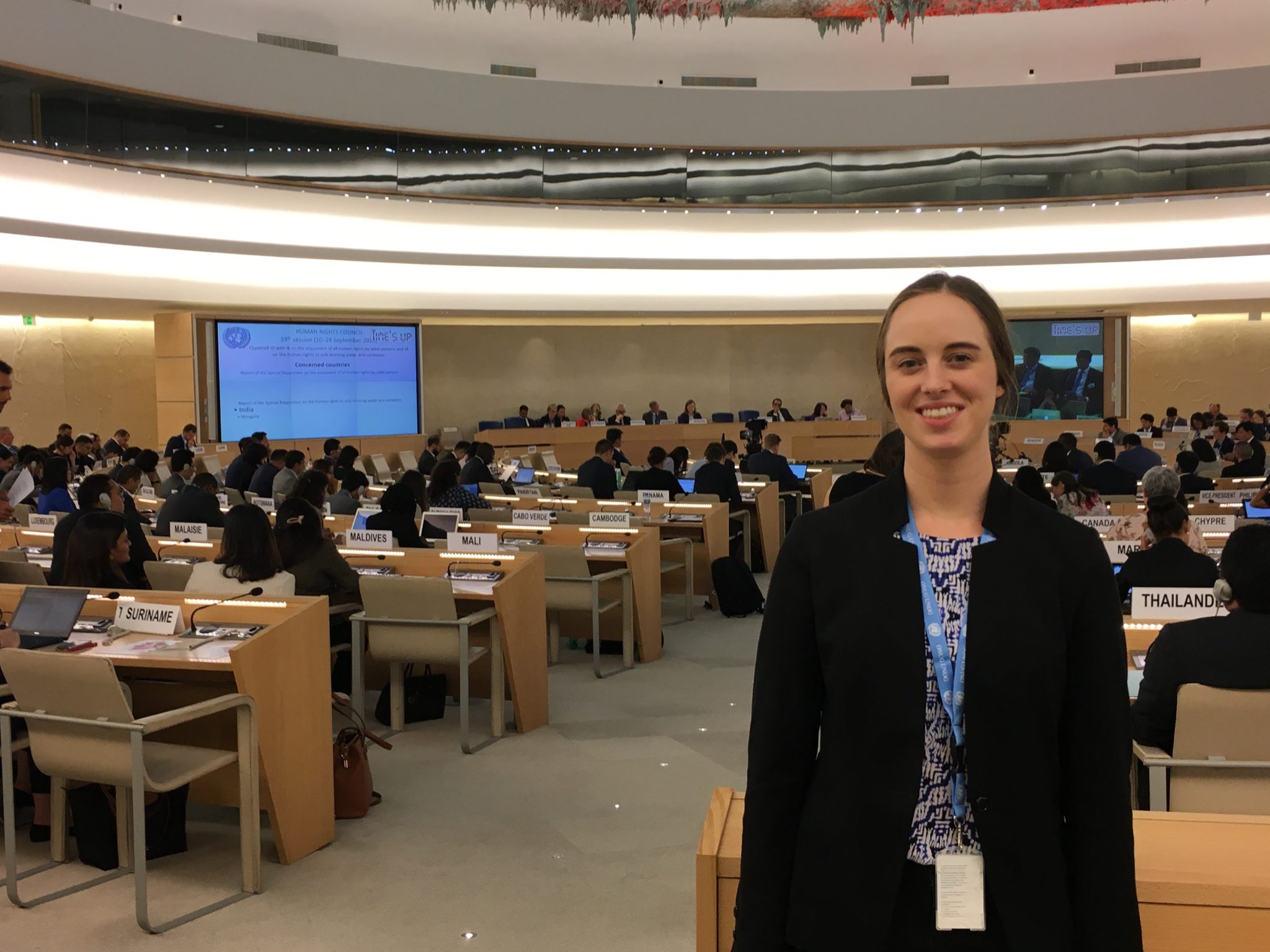On Monday 10 September, at the start of the 39th Session of the United Nations Human Rights Council, during the Interactive Dialogue with the Special Rapporteur on Contemporary forms of Slavery and the Independent Expert on International Democratic Order, ADHRB’s Advocacy Fellow delivered an oral intervention highlighting failing labor practices, human trafficking, and migrant labor violations. In the intervention, ADHRB criticized unwarranted praise from the United States regarding Bahrain’s labor migration practices, and called on the UN Special Rapporteur to request a country visit to Bahrain to independently evaluate the situation in the country. Click here for a PDF of the intervention or continue reading for the full text of the remarks.
Mr. President,
ADHRB would like to thank the Rapporteur and express grave concern over the prevalence of contemporary forms of slavery as well as related problems such as human trafficking.
In Bahrain, labor exploitation and migrant rights violations remain common. Bahrain has continuously failed to adopt labor laws that apply to domestic workers, despite repeated recommendations through the United Nations Universal Periodic Review. Though the government announced minimal reforms to the sponsorship system, many of its abusive tenets are still unofficially in force. Many Bangladeshi and Indian workers, for example, face continued rights violations like unpaid wages, with dozens protesting such unfair practices through the summer.
Nevertheless, Bahrain’s international allies have sought to whitewash these abuses. Just weeks after these migrant worker protests, the US State Department upgraded Bahrain to the most positive ranking in its Trafficking in Persons Report, indicating that the government “fully meets the minimum standards for the elimination of trafficking.” This upgrade lacks sufficient basis in demonstrable progress and appears to be a political decision stemming largely from the US embassy and the Trump administration’s commitment to eliminate “strain” with Bahrain’s king.
The report fails to address ongoing labor and migrant rights violations while completely ignoring how the how the wider deterioration of human rights protections in Bahrain – such as the dismantling of independent media and civil society groups – undermines nominal reforms to combat human trafficking.
With the State Department’s empty praise of Bahrain so clearly divorced from the facts, it is apparent the current US administration is allowing political biases to weaken its human rights reporting. We therefore ask, will your mandate request a country visit to Bahrain to independently report on human trafficking, debt bondage, wage withholding, and migrant rights violations?
Thank you.





